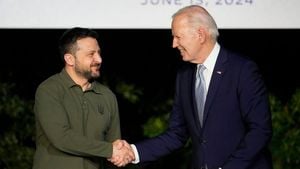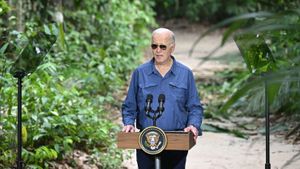Iran's relationship with the United States has been fraught with tension for decades, tracing back to the upheaval surrounding the 1979 Islamic Revolution. Once allies, the bond between the two nations soured dramatically post-revolution, particularly with the notorious hostage crisis where militant students took over the U.S. embassy in Tehran, leading to the severing of formal diplomatic ties.
The re-entering interest in diplomacy came suddenly, recently spotlighting U.S. billionaire Elon Musk's alleged engagement with Iranian diplomats. An article from The New York Times claimed Musk met with Amir Saeid Iravani, Iran's U.N. ambassador, to discuss easing tensions. This meeting was said to touch upon sensitive topics such as Iran's nuclear program and its support for groups hostile to Israel.
But the Iranian government quickly dismissed the report. Foreign Minister Abbas Araqchi assured the public during his televised interview on November 16, 2024, stating, "There was no permission from the leadership for such a meeting," referring to Iran's Supreme Leader, Ayatollah Ali Khamenei. Araqchi labeled the story as conjured by American media, asserting it was merely a "fabricated story" aimed at testing Iran's willingness for dialogue.
The backdrop of this alleged meeting brings to light the continuing conflict over Iran’s nuclear ambitions and its dealings with global powers. After the U.S. exited the 2015 nuclear agreement established under President Obama, which aimed to limit Iran's nuclear capabilities, tensions flared as the Trump administration reinstated harsh sanctions against Iran. Under Trump's guidance, the U.S. adopted what has been termed the “maximum pressure” strategy. This approach has only intensified Iranian defiance and hostility.
Despite previous conflicts, President Trump has repeatedly projected himself as the negotiator who could bridge divides, positioning himself to handle Iranian affairs during his campaign for re-election. Nonetheless, with key Republican foreign policy advisors expressing hardline stances on Iran, the feasibility of negotiations under his administration remains uncertain.
Musk's rumored role as intermediary sparked curiosity as he has established relationships with powerful politicians, including Trump himself, who has valued Musk's influence and presence within the tech industry. Speculation about this potential brokerage surfaced, but no confirmations emerged from Musk's camp or the Iranian mission to the United Nations.
Alongside these developments, Axios reported significant Iranian skepticism about engaging with Trump. Intelligence assessments suggested Iran viewed Trump's re-election as likely to escalate already high tensions, dampening the prospects of any fruitful discussions. Notably, Trump's past actions, including the assassination of Iranian General Qassem Soleimani, have added to Iran's aversion against U.S.-led diplomatic overtures. Following Soleimani's death, the Iranian leadership vowed retaliation.
Widespread criticism of Trump’s hardline policies on Iran still reverberates through both political parties, pushing against the hawkish narrative upheld by figures like Senator Marco Rubio. While some Republicans urge for pressure tactics, others advocate for diplomatic dialogue, urging reconciliation rather than the escalation of unwavering tensions. The bifurcation within U.S. politics reflects the complexity and challenge of forging policies around U.S.-Iran relations.
The significance of this political dynamic cannot be overstated. Following the reported denial of Musk's meeting, Iranian officials reinforced their readiness to engage either diplomatically or militarily. Araqchi made it clear, stating, "Our nuclear path will be sensitive and complex, and we are prepared for confrontation or cooperation." He emphasized the shift away from the significance of the 2015 nuclear agreement, asserting Iran's focus on negotiating favorable terms and emphasizing its nuclear program has not been fully answered nor understood by international observers.
Disputes have also emerged with the International Atomic Energy Agency (IAEA). Tehran asserts its sovereignty and independence on matters of defense and technological advancement. Disgrunting frustration over the IAEA’s investigations, which explore uranium traces found at undeclared sites, Iran insists on changing the venue for talks until it receives more clarity from Washington about future policies.
Despite the blurred lines on engagement, there remains cautious optimism. Following the positive reception of U.S. diplomatic efforts from past administrations, the upcoming discussions might have far-reaching consequences for U.S.-Iranian relationships. Trump’s administration has the chance to re-evaluate its approach, especially with the Republican party fractured over the best strategy moving forward.
Both governments find themselves at pivotal crossroads, with the potential for diplomacy looming ever more significant against the backdrop of historical mistrust. The question lingers: can the incoming Trump administration turn the tide and seek commonality with Iran, or will it disengage itself from the collaborative dialogue?



